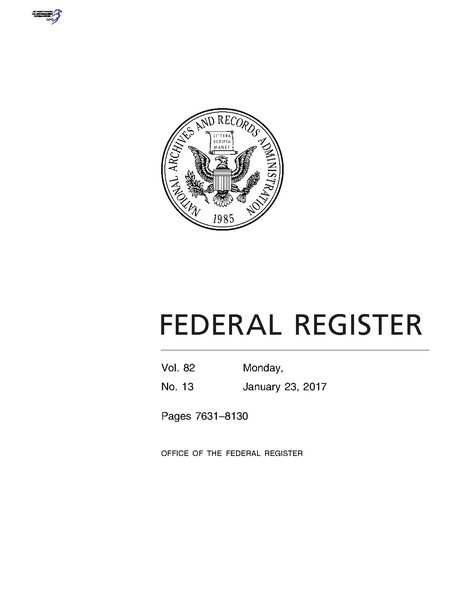Tag: administrative state
-
OIRA reviewed 39 significant rules in October

In October 2023, the White House Office of Information and Regulatory Affairs (OIRA) reviewed 39 significant regulatory actions issued by federal agencies. OIRA approved two of these rules with no changes and approved the intent of 35 rules while recommending changes to their content. Two rules were withdrawn from the review process by the issuing…
-
Federal Register weekly update: Lowest weekly page total so far in 2023

The Federal Register is a daily journal of federal government activity that includes presidential documents, proposed and final rules, and public notices. It is a common measure of an administration’s regulatory activity, accounting for both regulatory and deregulatory actions. From July 3, 2023, through July 7, 2023, the Federal Register grew by 838 pages for…
-
Federal judge blocks Biden administration guidance on transgender students

A federal judge from the United States District Court for the Eastern District of Tennessee on July 15, 2022, struck down a Department of Education order that aims to protect transgender students and workers from discrimination. The Biden administration released the challenged guidance in response to recent legislation passed by states that aim to bar…
-
Federal Register weekly update: Highest weekly page total of 2022

The Federal Register is a daily journal of federal government activity that includes presidential documents, proposed and final rules, and public notices. It is a common measure of an administration’s regulatory activity, accounting for both regulatory and deregulatory actions. From July 25 through July 29, the Federal Register grew by 2,898 pages for a year-to-date…
-
Federal Register weekly update: Tops 250 significant documents

The Federal Register is a daily journal of federal government activity that includes presidential documents, proposed and final rules, and public notices. It is a common measure of an administration’s regulatory activity, accounting for both regulatory and deregulatory actions. From July 18 through July 22, the Federal Register grew by 1,352 pages for a year-to-date…
-
Federal Register weekly update: Tops 15,000 documents

The Federal Register is a daily journal of federal government activity that includes presidential documents, proposed and final rules, and public notices. It is a common measure of an administration’s regulatory activity, accounting for both regulatory and deregulatory actions. From July 11 through July 15, the Federal Register grew by 1,608 pages for a year-to-date…
-
Federal Register weekly update: 898 new pages added

The Federal Register is a daily journal of federal government activity that includes presidential documents, proposed and final rules, and public notices. It is a common measure of an administration’s regulatory activity, accounting for both regulatory and deregulatory actions. From Jan. 17 through Jan. 21, the Federal Register grew by 898 pages for a year-to-date…

